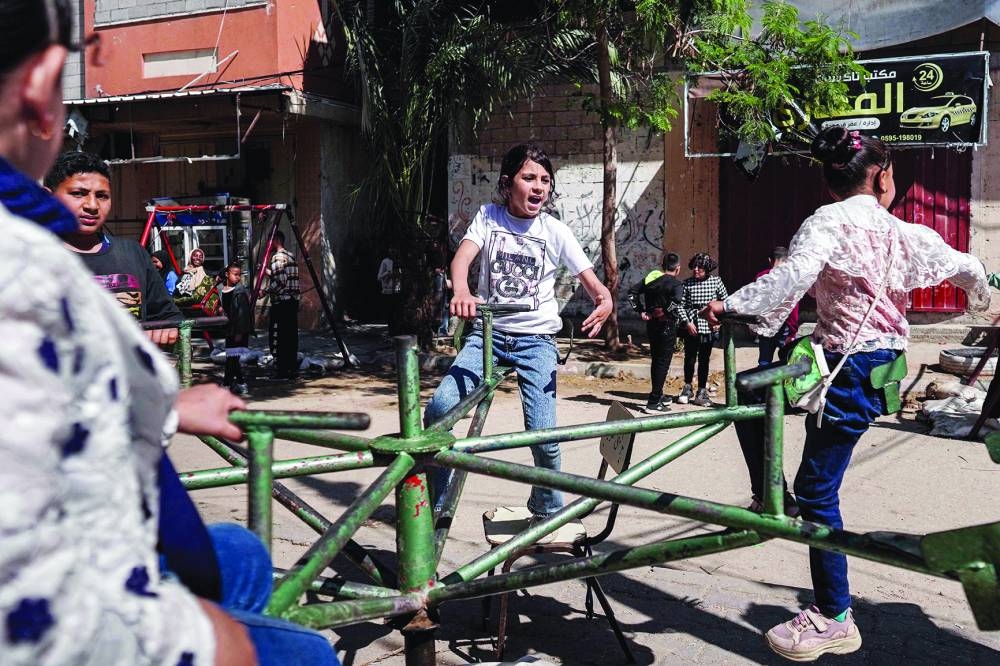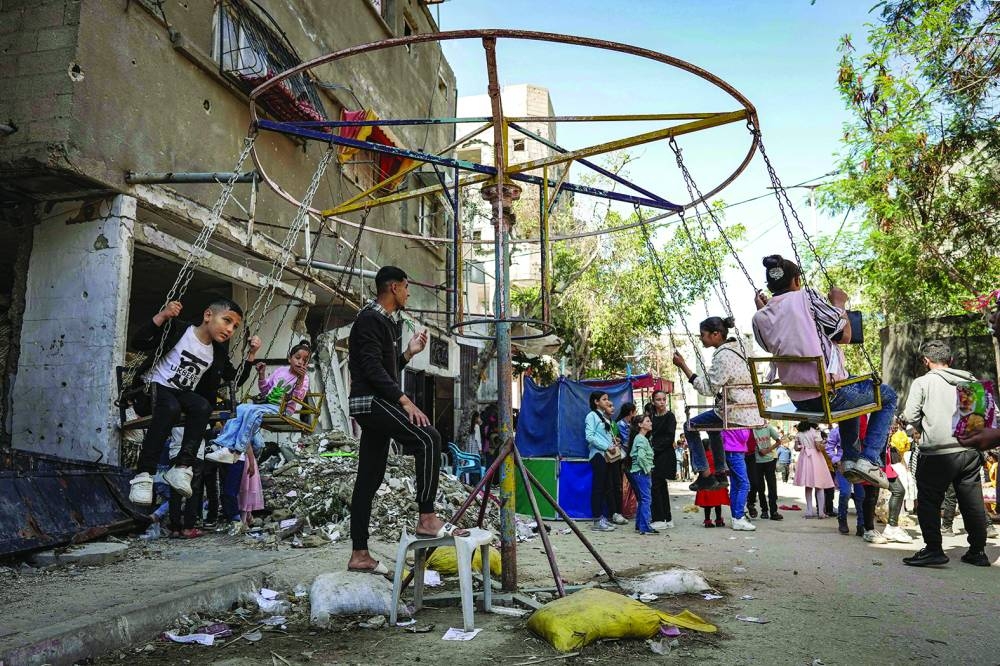Girls played on a makeshift seesaw in a Gaza bomb site this week while boys chased across rubble with plastic guns, their games reflecting an Eid al-Fitr holiday dominated by the war that has devastated the enclave.
Six months of an Israeli air and ground campaign in Gaza have changed all aspects of life, with most people driven from their homes, parts of the enclave facing famine, and disease spreading through the tent cities where many now live.
Eid al-Fitr, the festival that ends the fasting month of Ramadan, is usually a time for family celebrations including gifts of new toys for children.
This year, few can afford new toys, or find any in market stalls since Israel halted commercial imports into Gaza as part of its offensive to destroy Hamas, launched after the group mounted an armed rampage in Israel in October first week.
“We built this game because all our toys have been destroyed and our houses have been destroyed and there’s nothing for us to play with except this pipe,” said Magd Dahman, 14, one of a group of children who made the seesaw in the rubble of a bomb site.
The children of that part of Jabalia refugee camp, near Gaza City in the most damaged northern part of the tiny, crowded Gaza Strip, crowd around the seesaw in a Reuters video, sitting three-in-a-row on the long pipe it is made from. One boy, Mohamed Abu al-Qomsan, 14, plays a drum with his hands and signs sang as others gather round, and two small girls in striped jumpers take over the seesaw.
“There isn’t an atmosphere of Eid or the joy that comes with it,” he says. “As you can see, children are playing on the rubble and rocks. I’m entertaining them.”
Earlier in the week, boys with bright plastic guns staged a mock battle across the rubble of Jabalia camp, re-enacting those fought across the same territory over recent months between Hamas fighters and invading Israeli forces. “Some of these children’s fathers have been martyred. Their mothers have been martyred,” said Abdulrahman Abu Karsh, an activist organising children’s entertainment in Rafah in the south of Gaza.
“There’s sadness everywhere.”

Pictures show children sitting in a swing as they celebrate during the holiday of Eid al-Fitr, in Deir el-Balah in the central Gaza Strip.

Children sit in a swing as they celebrate during the holiday of Eid al-Fitr, in Deir el-Balah in the central Gaza Strip.
